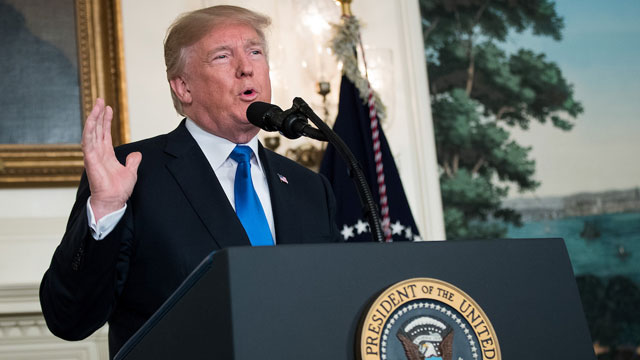The US scrapping of the Intermediate-Range Nuclear Forces (INF) treaty with Russia could launch a new arms race, but will also allow the United States to update its nuclear arsenal, a publicly stated goal for the past year.
President Donald Trump announced Friday the US was suspending its obligations under the INF treaty as of Saturday and starting a process to withdraw in six months.
NATO has said that US allies “fully support” its withdrawal from the pact, and agreed that Russia’s 9M729 ground-launched cruise missile systems violates the treaty.
A day later, Russian President Vladimir Putin announced a tit-for-tat withdrawal from the pact to develop “new types of weapons,” calling Washington’s decision “unilateral and totally unprovoked.”
The United States has complained about the alleged Russian violations for years.
But now it’s also speaking openly about its chance to upgrade its arms stock.
When the United States unveiled its new nuclear policy in February 2018, it warned that it planned to buy two new weapons: a new type of low-power nuclear missile to be launched from a submarine, and a new type of nuclear
cruise missile that would violate the INF agreement.
This new missile — which would only come into service within a decade —would only be a violation of the treaty if it were deployed, the Pentagon says.
It has always stressed that a research and development program was not prohibited by the 1987 treaty with Moscow.
So starting Saturday “we are no longer bound by the constraints of the Treaty,” Johnny Michael, a Pentagon spokesman, told AFP Friday.
The 2019 US military budget provides funds for developing this new intermediate-range land-based missile and “we are still in the research phase,” the spokesman said.
In fact, the Pentagon was already preparing its response to Russian missile 9M729, with a top range of 480 kilometers, Moscow insists.
But Washington, backed by NATO allies, says that Russian missile has already been tested on much greater distances.-AFP





